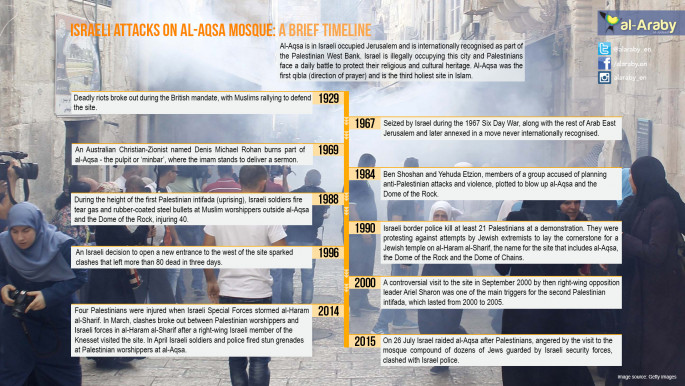Two Palestinian teens killed by Israeli soldiers
The Israeli army shot dead a 13-year-old Palestinian during clashes at a refugee camp near Bethlehem on Monday as violence spiked in east Jerusalem and the occupied West Bank, police and emergency services said.
Abdel Rahman Shadi was struck in the chest by Israeli fire at the Aida refugee camp, the sources said.
A doctor at the Beit Jala hospital says Abdel Rahman Shadi was killed by a live bullet to the chest and another Palestinian protester was wounded in clashes that took place on Monday at Rachel's Tomb in Bethlehem.
He is the second Palestinian killed by Israeli soldiers over the past 24 hours as clashes have spread.
On Sunday night, an 18-year-old Palestinian was killed during clashes in Tulkarem in the West Bank.
Clashes have spread after two recent attacks killed four Israelis and wounded a two-year-old child. Prime Minister Binyamin Netanyahu has pledged "a fight to the death against Palestinian terror" and announced new security measures.
Palestinian youths throwing stones and firebombs have faced off against Israeli security forces using both live rounds and rubber bullets. Jewish settlers have also clashed with Palestinians.
The Red Crescent says 456 Palestinians have been injured in the violent protests over the last two days alone.
Much of the recent violence has stemmed from tensions at the sacred hilltop compound, which has been a frequent flashpoint.
Its fate is a core issue at the heart of the Israeli-Palestinian conflict. It is known to Jews as the Temple Mount, site of the two biblical Jewish temples. Muslims revere it as the Noble Sanctuary, where they believe the Prophet Muhammad ascended to heaven.
There have been several days of clashes at the site over the past few weeks as Palestinians barricaded themselves inside the al-Aqsa mosque while hurling stones, firebombs and fireworks at police.
The unrest later spread to Arab neighbourhoods of east Jerusalem and to the West Bank.
The Israeli ban came hours after a 19-year-old Palestinian, Muhannad Halabi, attacked an Israeli family as they walked in the Old City, killing the father, seriously wounding the mother and lightly injuring their two-year-old toddler before proceeding to stab another Israeli man to death. He then opened fire at tourists and police before he was shot and killed by policemen who had rushed to the scene.
Halabi's comments on Facebook prior to the attack, along with a similar post by another attacker, have added to fears and public debate over whether the specter of another Palestinian Intifada, or uprising, is on the horizon.
"What's happening to our holy places? What's happening to our mothers and sisters in the al-Aqsa mosque," Halabi posted before the stabbing attack. "We are not the people who accept humiliation. Our people will revolt."
Palestinian President Mahmud Abbas phoned UN Secretary-General Ban Ki-moon to "brief him" on the unrest, according to his office.
Ban Ki-moon strongly condemned the attacks and expressed "deep concerns that these latest incidents signal a dangerous slide towards escalation.”
“The Secretary-General firmly believes that a just and lasting solution to the conflict can be achieved only through pursuing a negotiated two-state solution,” a United Nations [UN] statement said, adding that the UN stands ready to work with all parties to create the conditions on the ground, in the region and internationally to make meaningful negotiations possible.
 |
|
| Israeli attacks on al-Aqsa mosque: Click here to enlarge |





 Follow the Middle East's top stories in English at The New Arab on Google News
Follow the Middle East's top stories in English at The New Arab on Google News
![Israeli forces ordered bombed Gaza's Jabalia, ordering residents to leave [Getty]](/sites/default/files/styles/image_330x185/public/2176418030.jpeg?h=a5f2f23a&itok=_YGZaP1z)

